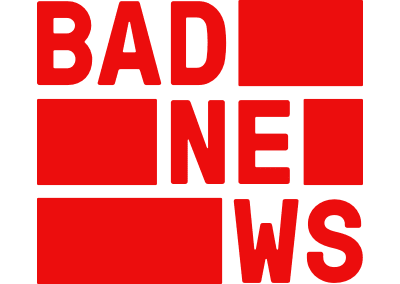2018 has been an intense year in the fight against disinformation. We wish 2019 to be the year of new resolutions (and actions) from online platforms and regulators. DisinfoLab is preparing a great present for you and you can make a wishlist! What are your plans on 28-29 May? Binge-watching Netflix? Depression after European elections? Tell us who you would like to hear at our annual conference instead.
Make your wishlist
Brace yourselves, regulation is coming
The latest scandals from Cambridge Analytica to 2016 elections interference have caught legislators’ attention to tech regulation in the US. This summer, California’s state legislature passed a groundbreaking bill that would give residents unprecedented control over their data. According to Wired, 2019 is much likely to see US data protection legislation as tech companies are now pushing for national legislation to avoid such state-based rules. The Trump administration’s National Telecommunications and Information Administration has released its own point-by-point proposal, describing in unspecific terms a set of “privacy outcomes” the administration would like to see.
Facebook company of the year

Mark Zuckerberg addresses his wishes and reviews all actions
Nothing is so sure, as The New York Times has been provided with more than 1,400 pages from Facebook moderation rulebooks by an employee. An examination of the files revealed numerous gaps, biases and outright errors. As Facebook employees grope for the right answers, they have allowed extremist language to flourish in some countries while censoring mainstream speech in others. In the absence of governments or international bodies that can set standards, Facebook is experimenting on its own.
After two years of repeated scandals, is Facebook at a turning point where it finally understands it is both a platform and a publisher? Nicolas Thompson and Fred Vogelstein from Wired come back on those past to years of hell for the company.
BBC vs RT
Russia’s media regulator investigating if BBC is “compliant with russian law“. The announcement of the investigation came a day after Ofcom said it was considering imposing sanctions on RT – which is financed by the Russian state – following an investigation into its skewed coverage of the Sergei Skripal poisoning. Meanwhile, a list of BBC reporters in Russia has been leaked online along with their photos. The leak comes after Sunday Times published names of journalists working for Moscow-backed Sputnik’s UK bureau
Play with the Devil

Just before Christmas break, we welcomed Marije Arentze, from media literacy initiative Drog, for our 3rd Webinar. Drog is a multidisciplinary team of academics, journalists and media experts. They conduct research, offer workshops, educational programmes and create innovative tools thathelp you build “resistance” to disinformation, using “gamification”. Drog hascreated the social impact game Bad News, where you take on the role of a propagandist. They believe the best way to cultivate a sixth sense to recognize and expose disinformation is to create it yourself. Read about their approach and the challenges of media literacy in our latest article.
How much of the internet is fake?
How much of the internet is fake? Studies generally suggest that, year after year, less than 60 percent of web traffic is human; some years, according to researchers, a healthy majority of it is bot. Even your Facebook friends might be fakes. Researchers are now able to copy the “styles” of source faces onto destination faces, creating blends that have copied features, but which look like entirely new people. Than who should we trust? Doubt is everywhere, as Der Spiegel star reporter confessed he made up more than a dozen stories. According to Anna Altman, this story might change the relationship of the newspaper with its readers, who placed trust in a robust media known for the emotional writing of its reporters and reliable fact-checking process.
Library
What to read, watch and listen to this week:
- A study shows 60% of Britons believe in conspiracy theories. The figures were the result of a large-scale international project conducted over six years and in nine countries by researchers at the University of Cambridge and YouGov, funded by the Leverhulme Trust.
- “A Long Way To Go: Analyzing Facebook, Twitter, and Google’s Efforts to Combat Foreign Interference”, Bradley Hanlon from the Alliance for Securing Democracy.
- BBC Amol Rajan made media predictions for 2019. Read some interesting takes about elections interference and Facebook pivot.
See all past and upcoming events in our agenda
Looking for fame? Calls for papers and awards
- Data journalism award 2019: apply until 7 April 2019.
- Call for Papers for the Workshop on Data Mining for Fake News in Social Media that will take place
in May 2-4, 2019 in Alberta, Canada. - The Sixth Global Fact-Checking Summit will be in Cape Town in June 2019. Express your interest to attend no later than Jan. 14, 2019.


